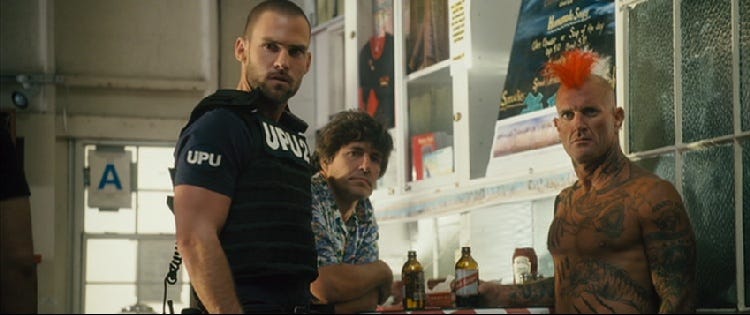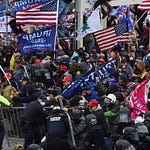Greetings and my apologies for being out of touch for a little while—things have been hectic!
Above you’ll find my guest spot on Podside Picnic where I discussed the classic film Southland Tales with the guys. It’s one of my favorite films and you’ll hear why (though I can’t for the life of me tell you anything about what the plot means).
On February 4, I wrote for The Nation about a proposal in St. Louis for spy planes to fly overhead to record the city’s residents.
First introduced by Alderman Tom Oldenburg in December 2020, Board Bill 200 would enable the St. Louis Police Department to use surveillance technology supplied by the company Persistent Surveillance Systems to capture aerial footage of the entire city for up to 18 hours a day with the stated aim of reducing crime.
On February 4, the bill was reported out of the Board of Aldermen’s Rules Committee with a “Do not pass recommendation”—meaning that the bill, on the day’s docket for Friday, would need two-thirds of the board, or 20 votes, to be pulled from the calendar. Without removal, the bill would be dead for this session.
The bill is dead.
The next week, at The Appeal, I released another bombshell report on Massachusetts police. Using body cam footage from Boston on May 29 and Worcester on June 1, I showed the abusive attacks on demonstrators by officers and how the footage shows a pattern of behavior that needs to change.
The Appeal emailed the Boston Police Department with questions about the arrests and police actions in question and asked for comment. The department did not comment specifically about these incidents and said it was trying to compare The Appeal’s descriptions of the videos with its arrest reports. In a contemporaneous press release about the May 29 arrests, the department said protesters engaged in “varying levels of disorderly behavior and conduct” and that four officers were injured during the unrest.
[…]
As bad as things were in Boston, in Worcester they appeared even worse. That didn’t surprise attorney Carl Williams, who noted that Boston police are less likely to take the kind of aggressive actions that Worcester cops do. Part of that is the history of organizing in the bigger city, he said, that has made Boston’s police less comfortable with overt displays of hostility and aggression toward the public.
Updates of more political writing to come.














Share this post